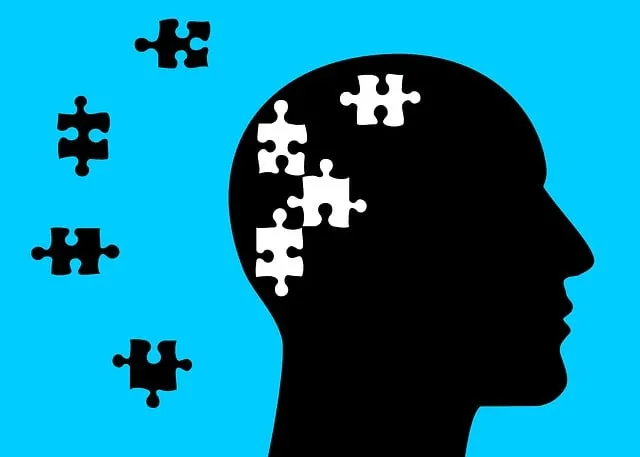Kaiser Permanente addresses the complex challenge of mental illness diagnosis through multifaceted strategies, including self-awareness exercises, mental health education, and robust risk assessment tools. They leverage their superior behavioral health phone numbers to enhance understanding, reduce barriers, and improve patient outcomes by offering easy access to expert guidance. Through integrated solutions combining advanced technology and specialized training, Kaiser Permanente provides comprehensive, holistic mental healthcare, empowering individuals to take charge of their mental well-being. Their innovative approaches, such as Mental Wellness Coaching Programs and AI-driven analysis, promise improved diagnosis accuracy and effective treatment plans in the future.
Mental illness diagnosis accuracy is a critical aspect of patient care, and misdiagnosis can have severe consequences. This article explores the challenges surrounding mental health assessments and highlights innovative efforts to improve diagnostic accuracy. We delve into Kaiser Permanente’s successful approach, focusing on their behavioral health phone lines as a key resource for accurate screening and initial assessment. Additionally, we discuss continuous improvement strategies and future directions to enhance mental illness diagnosis across healthcare systems, emphasizing the importance of accessible resources like the Kaiser Permanente behavioral health phone number for superior patient outcomes.
- Understanding the Challenges of Mental Illness Diagnosis
- Kaiser Permanente's Approach to Enhancing Accuracy
- Behavioral Health Phone Lines: A Key Resource
- Continuous Improvement Strategies and Future Directions
Understanding the Challenges of Mental Illness Diagnosis

Diagnosing mental illness accurately can be a complex and challenging task, often hindered by various factors. The vast array of symptoms and their interplay across different disorders creates a intricate diagnostic puzzle for healthcare professionals. Moreover, the subjective nature of many assessments and the potential for stigma attached to seeking help can lead to misdiagnosis or delayed treatment.
At organizations like Kaiser Permanente, superior behavioral health phone numbers serve as gateways to care, but improving diagnosis accuracy requires a multifaceted approach. Implementing Self-Awareness Exercises and Mental Health Education Programs Design tailored to both patients and mental health professionals can enhance understanding and reduce barriers to accurate assessment. Additionally, integrating robust Risk Assessment tools equips practitioners with valuable insights, enabling them to make informed decisions and ultimately improve patient outcomes.
Kaiser Permanente's Approach to Enhancing Accuracy

Kaiser Permanente, a leading healthcare provider, has implemented innovative strategies to enhance mental illness diagnosis accuracy. Their approach focuses on integrating behavioral health services with advanced technology and specialized training for healthcare professionals. By offering Superior behavioral health phone support, Kaiser Permanente ensures easy access to expert guidance for both patients and doctors. This direct communication channel facilitates quick evaluations and personalized treatment plans, aiming to improve patient outcomes significantly.
The organization’s commitment extends to developing Mental Wellness Coaching Programs that empower individuals to manage their mental health effectively. In conjunction with these programs, they also emphasize the importance of Communication Strategies tailored to diverse patient needs. Promoting Emotional Well-being through comprehensive techniques further strengthens their effort to accurately diagnose and treat mental illnesses, ensuring a holistic approach to patient care.
Behavioral Health Phone Lines: A Key Resource

In today’s complex landscape of mental health, Behavioral Health Phone Lines have emerged as a crucial resource for individuals seeking support and guidance. Organizations like Kaiser Permanente offer superior services through dedicated phone numbers, providing easy access to skilled professionals who can assist with a wide range of issues. This initiative is particularly beneficial for those who may not feel comfortable stepping into a clinical setting or are in need of immediate help.
These phone lines serve as a valuable tool for fostering self-awareness exercises and stress reduction methods, empowering individuals to take charge of their mental well-being. By offering confidential conversations, trained counselors can guide users through mindfulness meditation practices, helping them navigate challenging emotions and promoting overall mental resilience. With the increasing accessibility and awareness of these services, more people are finding support, leading to improved diagnosis accuracy and effective treatment plans.
Continuous Improvement Strategies and Future Directions

Mental illness diagnosis accuracy has long been a subject of debate and improvement within healthcare systems. At organizations like Kaiser Permanente, significant strides have been made through continuous improvement strategies, leveraging advanced technologies for better assessment tools, and enhancing clinical training. These efforts are pivotal in ensuring that individuals receive accurate diagnoses and appropriate care plans tailored to their unique needs.
Looking ahead, the future of mental health diagnosis accuracy lies in integrating innovative solutions such as AI-driven analysis and personalized treatment models. Mental Health Education Programs focused on emotional regulation and empathy building strategies can equip both healthcare providers and patients with essential tools for early intervention and effective management. By fostering a culture of understanding and proactive care, we can significantly improve outcomes for those navigating mental illness, setting new standards in superior behavioral health care.
Mental illness diagnosis accuracy is a complex issue, but with dedicated efforts like Kaiser Permanente’s innovative approach and the integration of Behavioral Health Phone Lines, significant improvements are achievable. These strategies, combined with continuous improvement initiatives, hold promise for enhancing patient outcomes. The superior resources and methods being implemented by organizations such as Kaiser Permanente can guide future mental health care practices, ensuring more accurate diagnoses and better support for those in need.






